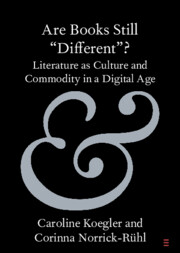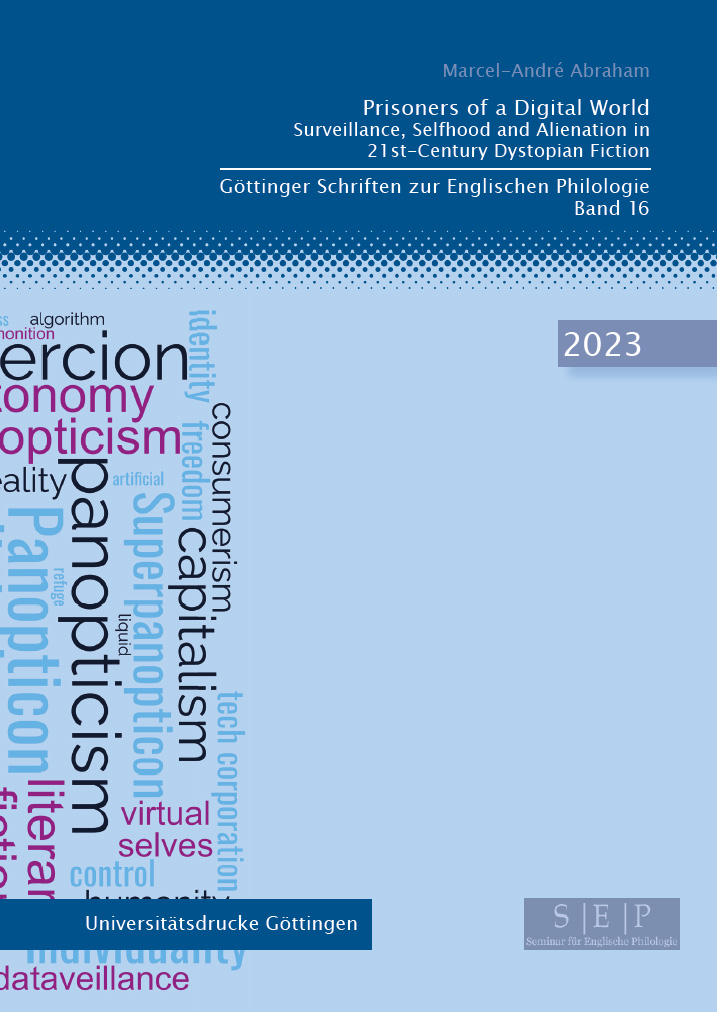In der letzten Zeit sind u.a. diese frei verfügbaren Titel erschienen:
Are Books Still ‚Different‘? Literature as Culture and Commodity in a Digital Age
Caroline Koegler & Corinna Norrick-Rühl
https://doi.org/10.1017/9781108982450
The famous 1962 precedent at the Restrictive Practices Court of the United Kingdom, ‚Books are different,‘ is still the reasoning behind many cultural policies around the world, building on longstanding assumptions surrounding ‚the book‘. As this suggests, the ‚difference‘ of the book as a unique form of cultural (rather than economic) production has acquired a powerful status. But are books still different? In (somewhat provocatively) asking this question from a network-oriented and interdisciplinary perspective (book studies/literary studies), this Element inquires into the notion of ‚difference‘ in relation to books. Challenging common notions of ‚bibliodiversity,‘ it reconsiders the lack of diversity in the publishing industry. It also engages with the diversifying potentials of the digital literary sphere, offering a case study of Bernardine Evaristo’s industry activities and activism, the Element concludes with thoughts on bookishness, affect and networked practice.
On Making Fiction: Frankenstein and the Life of Stories
Friederike Danebrock
https://doi.org/10.14361/9783839465509
Fiction is generally understood to be a fascinating, yet somehow deficient affair, merely derivative of reality. What if we could, instead, come up with an affirmative approach that takes stories seriously in their capacity to bring forth a substance of their own? Iconic texts such as Mary Shelley’s Frankenstein and its numerous adaptations stubbornly resist our attempts to classify them as mere representations of reality. Friederike Danebrock shows how these texts insist that we take them seriously as agents and interlocutors in our world- and culture-making activities. Drawing on this analysis, she develops a theory of narrative fiction as a generative practice.
Prisoners of a Digital World: Surveillance, Selfhood and Alienation in 21st-Century Dystopian Fiction
Marcel-André Abraham
https://doi.org/10.17875/gup2023-2215
Im digitalen Zeitalter nimmt Überwachung stetig zu durch die wachsende Existenz von Big Data, elektronischen Geräten und Wireless-Technologien. Gleichzeitig ist eine steigende Anzahl von Individuen hochgradig abhängig von Social Media und tief versunken in virtuellen Welten – mit sichtbaren Auswirkungen auf ihre Psyche, Wahrnehmung und Kommunikationsfähigkeit. Diese Abschlussarbeit untersucht bekannte Überwachungstheorien aus dem Forschungsfeld der Surveillance Studies und versucht diese in ein schlüssiges Gefüge zu integrieren, um Überwachung im digitalen Zeitalter und dessen Auswirkungen auf Individuen zu analysieren. Der Hauptteil dieser Arbeit wendet dieses Bezugssystem auf drei zeitgenössische digitale Dystopien an, welche keinesfalls bloß banale und weithergeholte Romane sind. Schon jetzt spiegeln diese in gewissem Maße unsere Realität wider und können als Vorwarnungen verstanden werden, die deutlich aufzeigen, was potenziell passieren könnte, wenn die Menschheit sich dazu entschließen sollte, die Privatsphäre gegen Bequemlichkeit, Beachtungsbedürfnisse, Selbstdarstellung sowie die von Technologiekonzernen propagierten Ideale der totalen Vernetzung und Transparenz einzutauschen.



